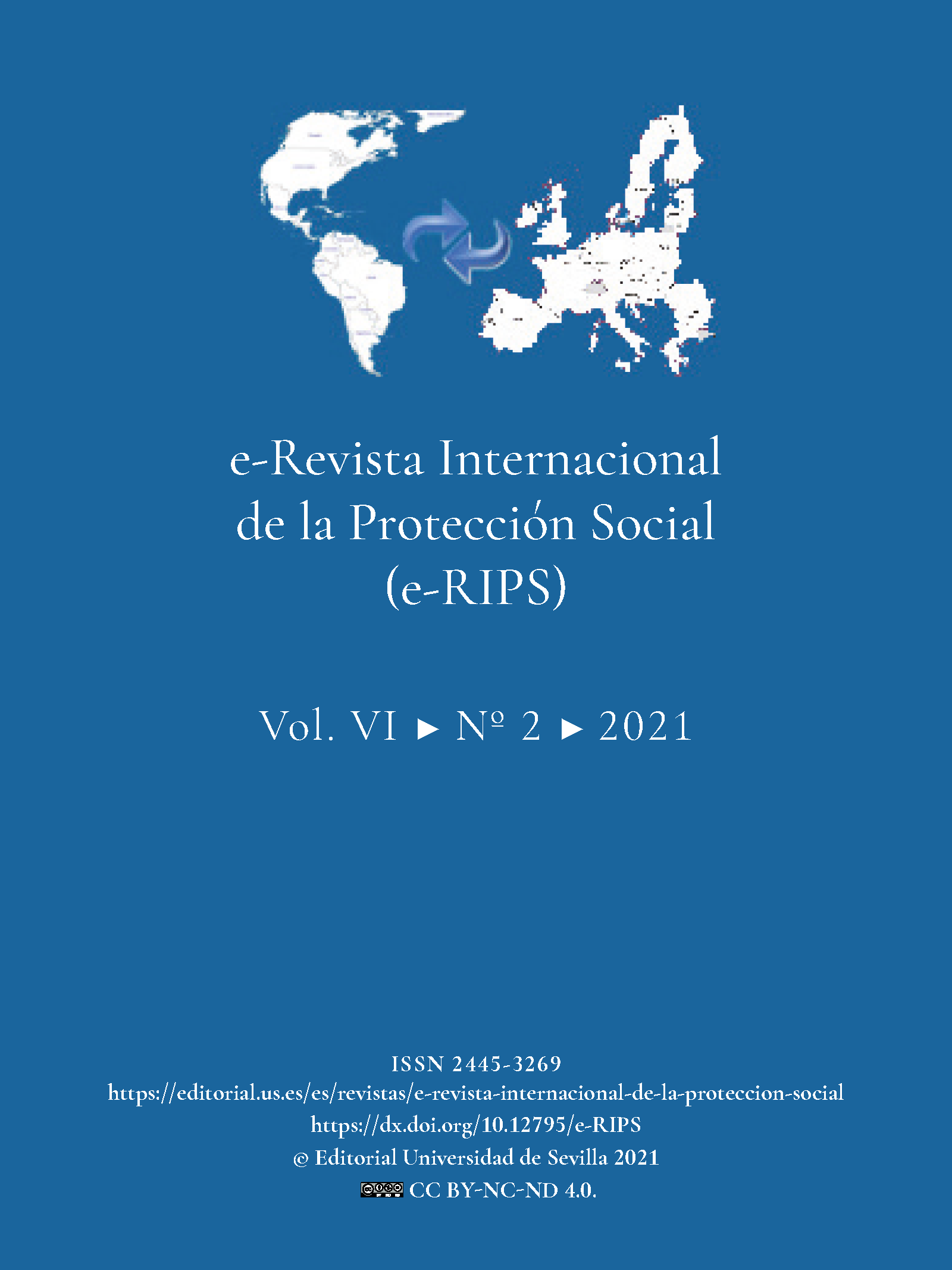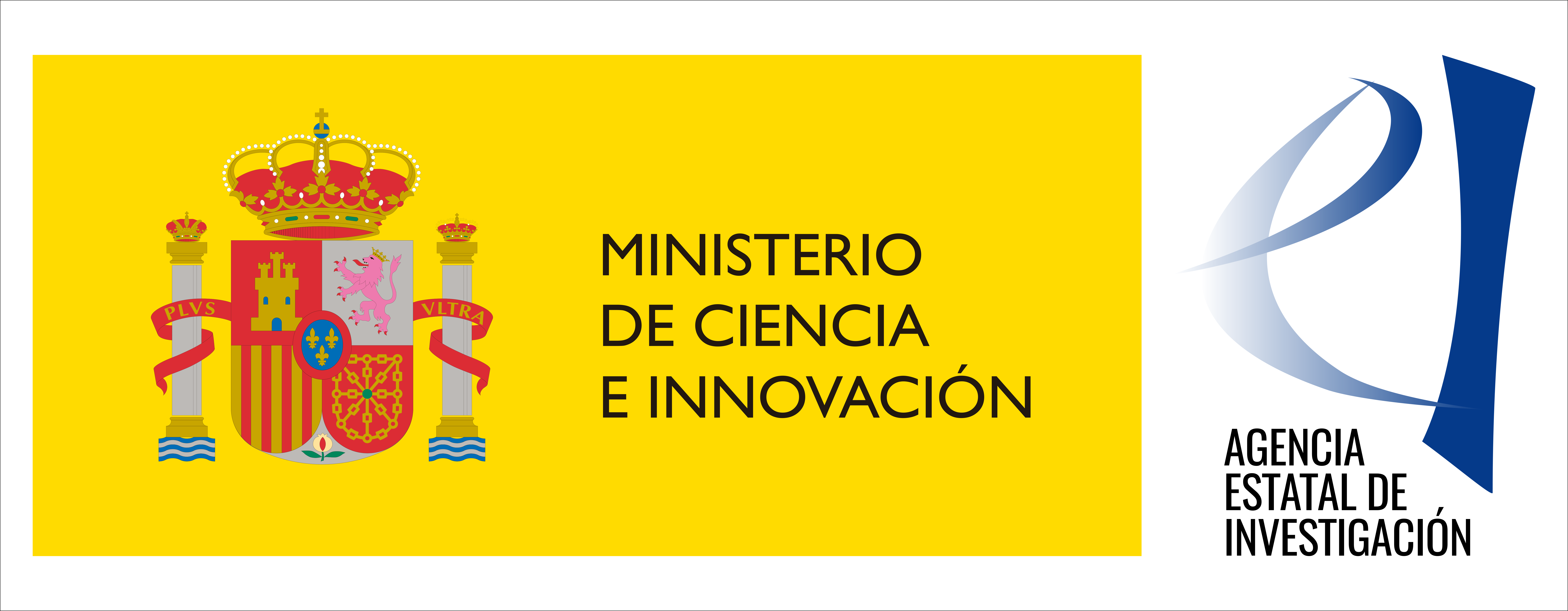Migrants and the challenge of decent work in Malta
DOI:
https://doi.org/10.12795/e-RIPS.2021.i02.12Palabras clave:
Migrantes, Trabajo decente, Condiciones laborales, Nacionales de terceros Países, MaltaResumen
Este documento investiga los desafíos que enfrentan los migrantes en su búsqueda de un trabajo decente en el contexto del pequeño país de Malta. El país fue testigo de un crecimiento extraordinario de trabajadores migrantes en los últimos años. Si bien algunas leyes promueven el empleo decente de los migrantes, otras actúan como barreras. La población maltesa ha resistido tradicionalmente a los trabajadores extranjeros y al multiculturalismo. Sin embargo, estas actitudes empezaron a mejorar, especialmente entre los interlocutores sociales, que apoyan cada vez más a los trabajadores migrantes y tratan de mejorar sus condiciones de trabajo. Las investigaciones indican una serie de dificultades a las que se enfrentan los trabajadores migrantes en Malta, que incluyen: barreras para acceder al empleo; subempleo y falta de movilidad laboral; oportunidades de formación insuficientes; mayor riesgo de pobreza a pesar de trabajar muchas horas; mayores riesgos para la salud y la seguridad, especialmente entre quienes tienen trabajo no declarado; relaciones complejas con superiores, colegas y clientes; y baja sindicalización. La pandemia de Covid-19 aumentó la vulnerabilidad de los migrantes y revirtió algunos de los avances que se habían logrado en los últimos años, especialmente en términos de actitudes sociales.
Descargas
Citas
Attard, S.; Cassar, C.; Gauci, J. P.: ENAR shadow report 2012-2103: Racism and related discriminatory practices in employment in Malta, European Network against Racism, Brussels, 2013.
Baldacchino, G.: “Malta and the ‘new normal’: the labour importing economy”, in Borg, A. (ed.): Centre of Labour Studies Biennial Report 2015-2016, University of Malta, Malta, 2017.
Buttigieg, S. C.; Agius, K.; Pace, A.; Cassar, M.: “The integration of immigrant nurses at the workplace in Malta: a case study”, International Journal of Migration, Health and Social Care, vol. 14, n. 3, 2018.
Central Bank of Malta: Fifty-third Annual Report and Statement of Accounts 2020, 2020.
Collantes, S.; Soler, A.; Klorek, N: Access to healthcare and living conditions of asylum seekers and undocumented migrants in Cyprus, Malta, Poland and Romania, HUMA Network, 2011.
Debono, M.: “Covid-19: The great disruptor of working lives”, in Debono, M.and Baldacchino, G. (Eds.): Working life and the transformation of Malta 1960-2020, Malta University Press, Malta, 2021.
Debono, M.; Vassallo, M. T.: “An analysis of the working conditions of Filipinos in Malta”, European Scientific Journal, vol. 15, n. 26, 2019.
Debono, M.; Vassallo, M.T.: “Predictors of employment outcomes among Filipino workers in Malta”, Xjenza Online, vol. 8, n. 1, 2020.
Department of Industrial and Employment Relations: “The conditions and employment and the level of integration of third country nationals at their place of work”, 2014.
Erby, W.; Smith, C.; Blustein, D.; Davila, A.: “Chapter 1 – Racism and the future of work”, Career Planning and Adult Development Journal, vol. 36, num. 2, 2021.
European Commission: Special Eurobarometer 437. Discrimination in the EU in 2015, 2015.
European Commission: Special Eurobarometer 469 – Integration of immigrants in the European Union – Malta, 2017.
European Commission: Special Eurobarometer 493 –Discrimination in the European Union – Malta, 2019.
European Commission against Racism and Intolerance: ECRI Report on Malta (Fourth monitoring cycle), Council of Europe, Strasbourg, 2013.
European Union Agency for Fundamental Rights: EU-MIDIS: European Union minorities and discrimination survey. Main results report, Publications Office of the European Union, Luxembourg, 2010.
Grech, A. G.: “Assessing the economic impact of foreign workers in Malta”, Central Bank of Malta Quarterly Review, n. 1, 2016.
Grech, A. G.: “Did Malta’s accession to the EU raise its potential growth? A focus on the foreign workforce”, Journal of Economic Integration, vol. 32, n. 4.
Holicza, P.; Stone, A. M.: “Beyond the headlines: Economic realities of migration and the labour market in Malta”, Journal of International Studies, vol. 9, n. 3, 2016.
International Labour Organization: Decent work indicators: Guidelines for producers and users of statistical and legal framework indicators, International Labour Office, Geneva, 2013.
International Labour Organization: Decent Work. Report of the Director-General at 87th Session of International Labour Conference, International Labour Office, Geneva, 1999.
Malta Employers’ Association: Facilitating the employment of foreign employees in Malta – Recommendations by MEA, 2016.
Suban, R.; Zammit, D. E.: “Promoting the integration of third-country nationals through the labour market: combating discrimination in employment: the case of third-country nationals in Malta”, Mediterranean Human Rights Review, vol. 1, 2019.
The People for Change Foundation (PfC): Assess. Integration of Vulnerable Migrant Groups. Review of existing monitoring mechanisms for the integration of migrants in Malta, Assessing Integration Measures for Vulnerable Migrant Groups, 2014.
Van Hooren, D.: “Outsiders as invaders: On the attitudes of Maltese citizens toward irregular immigrants”, in Muller, T. (Ed.): Contributions from European symbolic interactionists: Conflict and cooperation, Emerald Group Publishing Limited, Bingley (UK), 2015.
Vassallo, M. T.; Debono, M.: “Labouring behind closed doors: The working and living conditions of Filipino live-in care workers in Malta”, in Ozen, E.and Grima S. (eds.): Emerald studies in finance, insurance and risk management Vol 1 – Uncertainty and challenges in contemporary economic behaviour, Emerald Group Publishing, Bingley, 2020.
Descargas
Publicado
Cómo citar
Número
Sección
Licencia
e-Revista Internacional de la Protección Social es una revista de acceso abierto, lo que significa que todo su contenido está disponible gratuitamente para el usuario o su institución. Los usuarios pueden leer, descargar, copiar, distribuir, imprimir, buscar o enlazar con el texto completo de los artículos, o utilizarlos para cualquier otro fin lícito, sin solicitar permiso previo al editor o al autor. Esta definición de acceso abierto se ajusta a la Iniciativa de Acceso Abierto de Budapest (BOAI).
 4.0
4.0
A menos que se indique lo contrario, todo el contenido de la edición electrónica se distribuye bajo una " licencia internacional Creative Commons Atribución-Nocomercial-Compartirigual 4.0 Internacional". Puede consultar la versión informativa y el texto legal de la licencia aquí. Esto debe indicarse expresamente de esta manera cuando sea necesario.
En caso de aceptación del manuscrito, los autores ceden los derechos de la obra para su publicación a eRIPS. Revista Internacional de la Protección Social bajo el contrato de licencia Reconocimiento-NoComercial-CompartirIgual 4.0 Internacional (CC BY-NC-SA 4.0). Los autores conservan los derechos de autor y terceros están autorizados a compartir y adaptar la obra, siempre que cumplan con los términos y condiciones establecidos en la licencia.
- Usted debe dar crédito de manera adecuada , brindar un enlace a la licencia, e indicar si se han realizado cambios . Puede hacerlo en cualquier forma razonable, pero no de forma tal que sugiera que usted o su uso tienen el apoyo de la licenciante.
- Usted no puede hacer uso del material con propósitos comerciales .
- Si remezcla, transforma o crea a partir del material, debe publicar sus contribuciones bajo la misma licencia que el original.
Se puede encontrar más información en https://creativecommons.org/licenses/by-nc-sa/4.0/deed.es
Se permite y recomienda a los autores/as difundir su obra a través de Internet (p. ej.: en archivos telemáticos institucionales o en su página web) antes y durante el proceso de envío, lo cual puede producir intercambios interesantes y aumentar las citas de la obra publicada.











